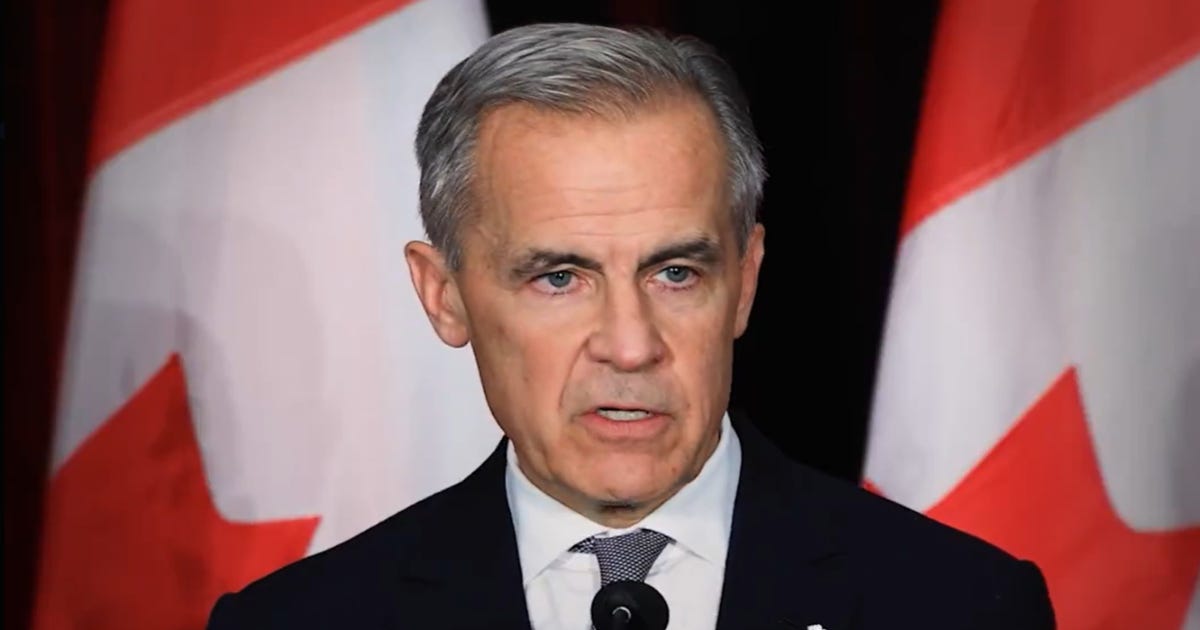One of Carney’s fast-track projects stalls after failing to meet conditions
The New Brunswick government confirmed that the Sisson Mine project has failed to meet a single one of the 40 conditions required for approval and would not be moving forward immediately.
One of Prime Minister Mark Carney’s “nation-building” projects may already be dead on arrival. The New Brunswick government confirmed that the Sisson Mine project has failed to meet a single one of the 40 conditions required for approval and would not be moving forward immediately.
Despite Carney adding the mine to his second wave of nation-building projects, the New Brunswick government’s environmental impact assessment (EIA) approval will likely keep the project in limbo.
“The EIA process is a living process, so I’d say the 40 are not complied [with] yet, and we know that 28 of those conditions need to be fulfilled before construction starts,” Environment Minister Gilles LePage recently told reporters.
These conditions include approvals for air and water quality, an emergency response plan, modelling for potential tailings pond failures, and a requirement for construction to begin within five years.
The EIA process began in 2015, with the province extending the deadline twice, in 2020 and 2022. LePage then extended it again to 2030 earlier this month.
The minister also told reporters that the 40 conditions will be held to present environmental regulations, not those from a decade earlier.
“They’re still valid, but we have to make sure that they are up to date,” said LePage. “The standard of the response from the proponent has to be up to date with today’s regulations — municipal, provincial and federal.”
Among the required changes would be creating a new wetland map to further identify at-risk species in the area.
The critical minerals project would extract tungsten and molybdenum, both key elements used in batteries.
The Carney government referred the mine to its Major Projects Office for approval earlier this month.
New Brunswick Premier Susan Holt responded to the announcement by saying her government would “ensure this opportunity strengthens our province, supports good paying jobs for New Brunswickers, and helps grow our provincial economy.”
However, her government is also seeking a guarantee that the mine will be able to generate viable prices for its minerals once it is operating.
A lack of investment, due to cheaper prices provided by China, has stalled the project’s advancement for years.
The project also requires support from New Brunswick’s First Nations to proceed.
An accommodation agreement for the mine was signed between the Wolastoqey chiefs and the provincial government in 2017.
While that agreement still stands, meeting the 40 conditions was a prerequisite for the First Nation’s final approval.
Following Carney’s announcement, a joint statement from the six chiefs was issued to reaffirm their commitment to the 40 conditions.
“The Wolastoqey Chiefs insist that all proper processes will be followed and the conditions upon which the mine was established will be maintained. This includes ensuring the EIA conditions put forth by the province are met along with the accommodations outlined in the agreements signed by our communities,” it reads.
“At this time, we are monitoring all new information, reviewing what this means for existing legal matters, and pressing governments to uphold Wolastoqey Rights at every step.”



So what exactly was the point of conning Parliament into passing a piece of legislation that granted Carney the ability to over-ride everything that might hold up any given project he decided to fast track..
... OR ...
As was likely the case was this simply another fraud perpetrated upon the voters to make it appear that Carney was actually going to do something for Canada's economy?
So what I see is that carney is picking projects that can not be started immediately, so he can blame the nonstarts on everyone else!